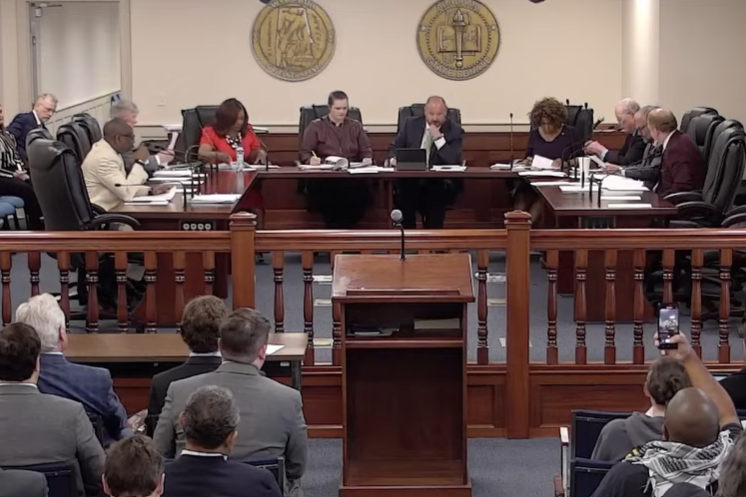MONTGOMERY—The Senate County and Municipal Government Committee approved legislation on Tuesday allowing the establishment of “research and development corridors” in Alabama.
The bill would authorize municipalities to authorize the incorporation of a research and development corridor with the ability to collect fees within its corporate limits as a public corporation.
The bill would exempt corridors from fees and charges imposed by a probate judge and from specific taxation. The bill would also exempt corridors and their projects from competitive bid laws.
“This bill will allow the creation of a research and development corridor by municipalities in Alabama that choose to participate. Initially, this will apply to a project in the southside of Birmingham, UAB, Southern Research, and a new community called Southtown which will be developed by biotech companies. This is huge for Birmingham and huge for Alabama,” State Sen. Jabo Waggoner (R-Vestavia Hills), the bill’s sponsor, said at the committee meeting on Tuesday.
Senators sponsoring a similar two-bill package creating “innovation districts” instead of “research and development corridors” recently pulled down the bills from the Senate floor without a vote over concerns about the legislation giving innovation districts eminent domain power and the ability to buy land around the state.
Waggoner’s bill was filed last week and passed out of committee on Tuesday.
Under Waggoner’s bill, the corridor would be created by a resolution adopted by the governing body of a municipality to authorize the incorporation of a research and development corridor with powers to operate within the city’s limits. The corridor would be governed by an unelected board of directors.
A majority of the directors must be residents of the city authorizing the corridor, and a minority of the directors may be non-residents. However, any non-resident director must also be approved by the city council or commission.
The bill allows for the corridor to acquire property within the corridor's limits by gift, purchase, transfer, and foreclosure. Eminent domain isn’t listed as a power of the corridor in the new legislation.
Each corridor will annually submit a report detailing all activities within the corridor and audited financial statements to the governor, the lieutenant governor, the speaker of the House of Representatives, the president of the Senate and the authorizing municipality.
To connect with the author of this story or to comment, email caleb.taylor@1819News.com.
Don't miss out! Subscribe to our newsletter and get our top stories every weekday morning.










